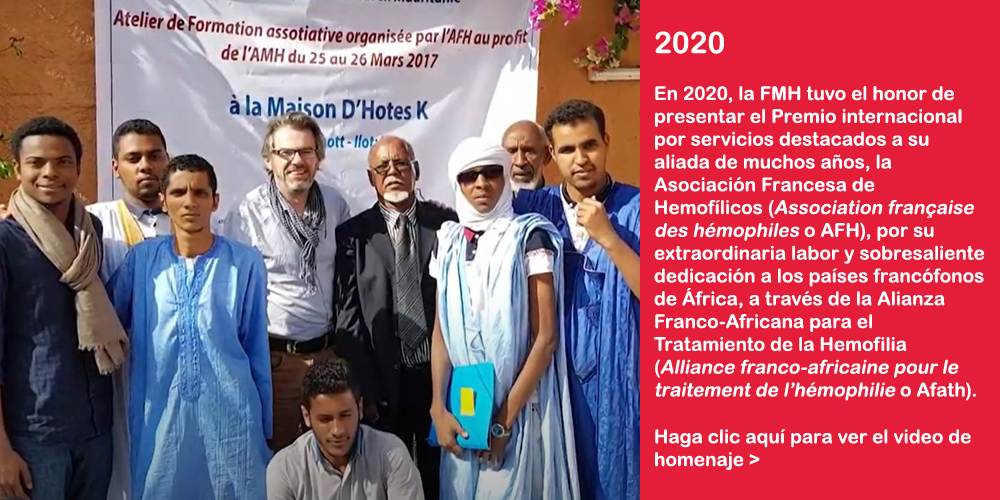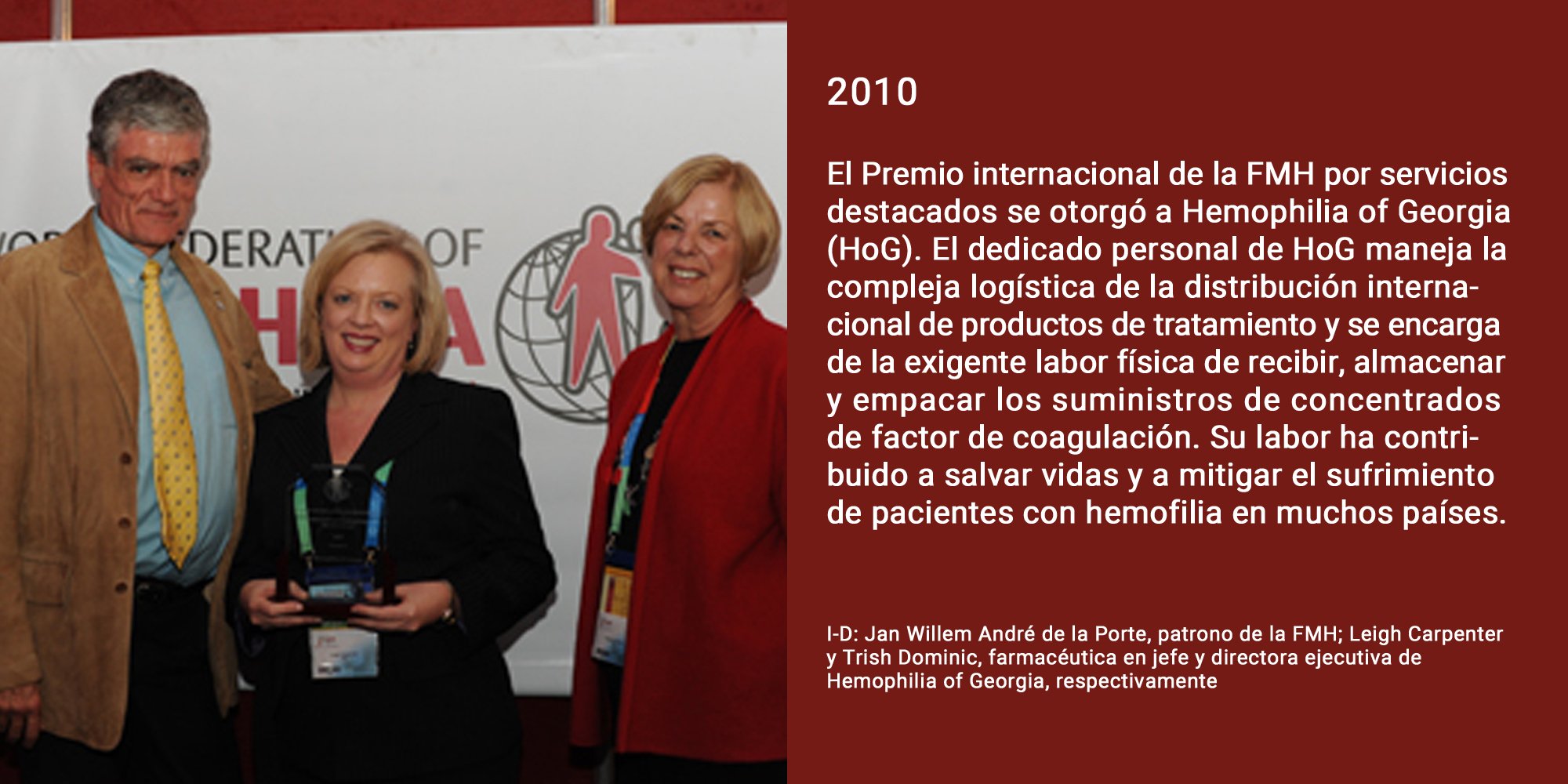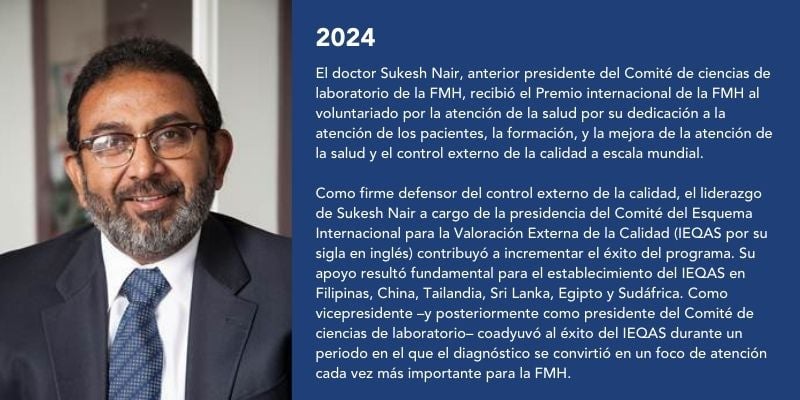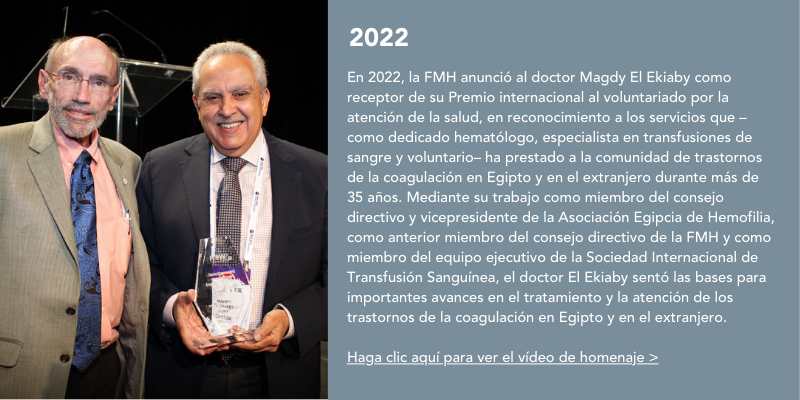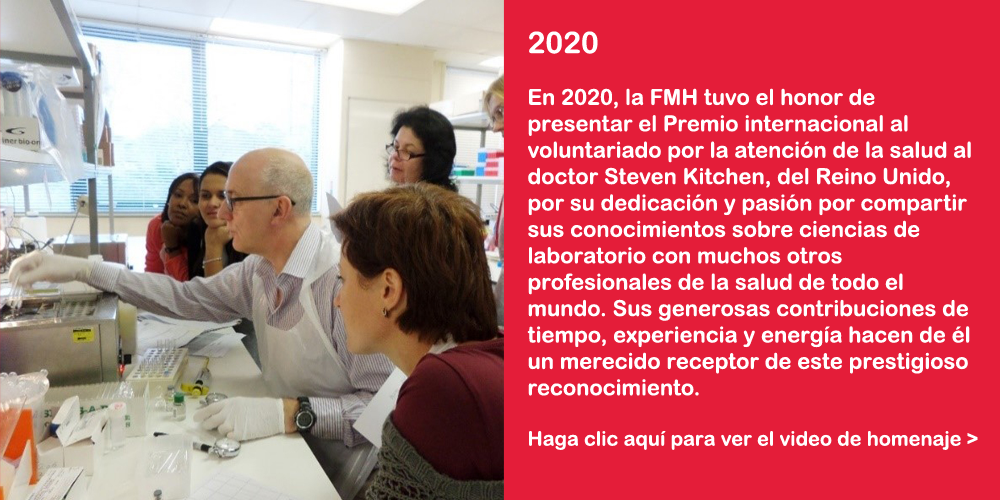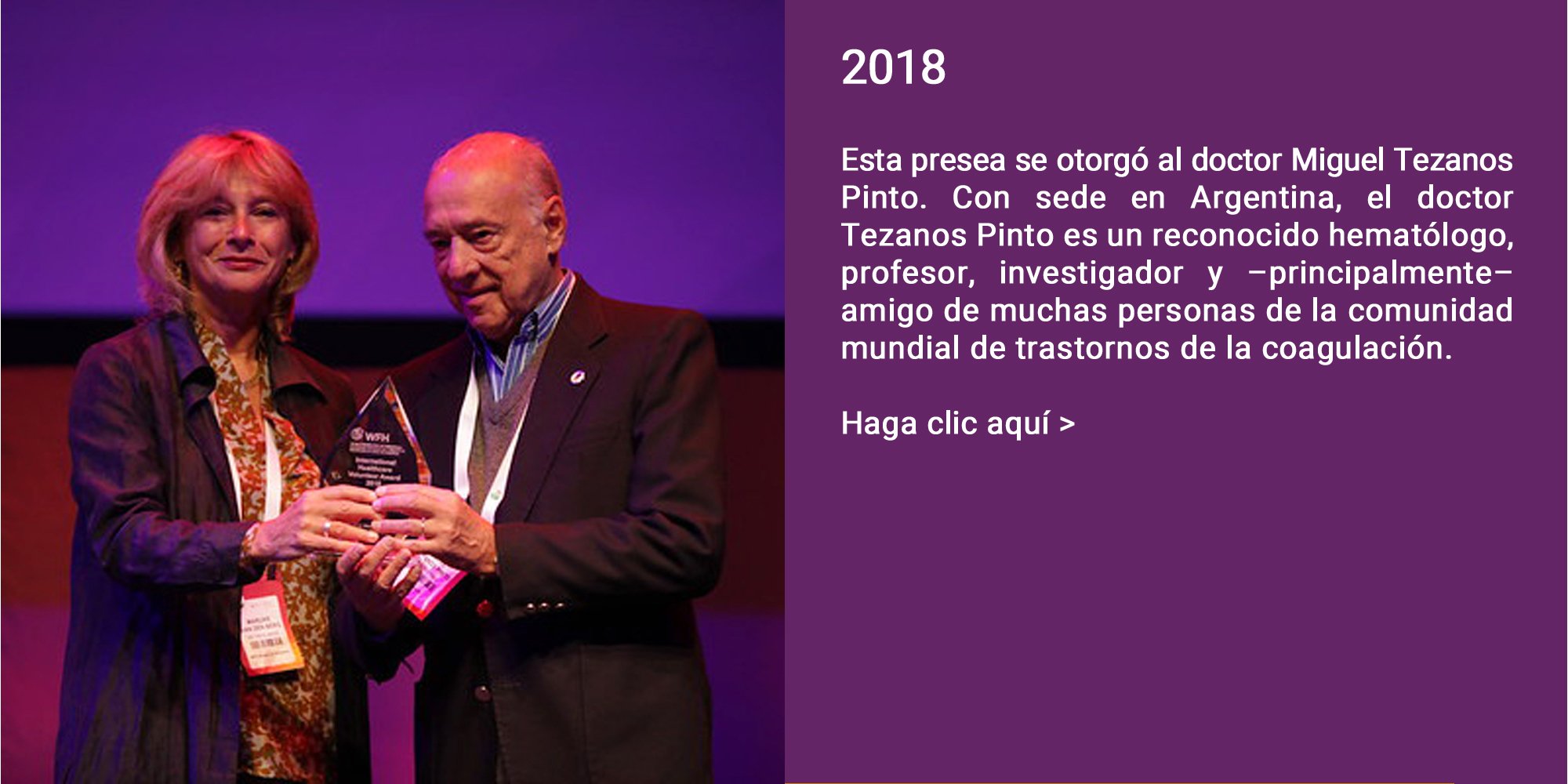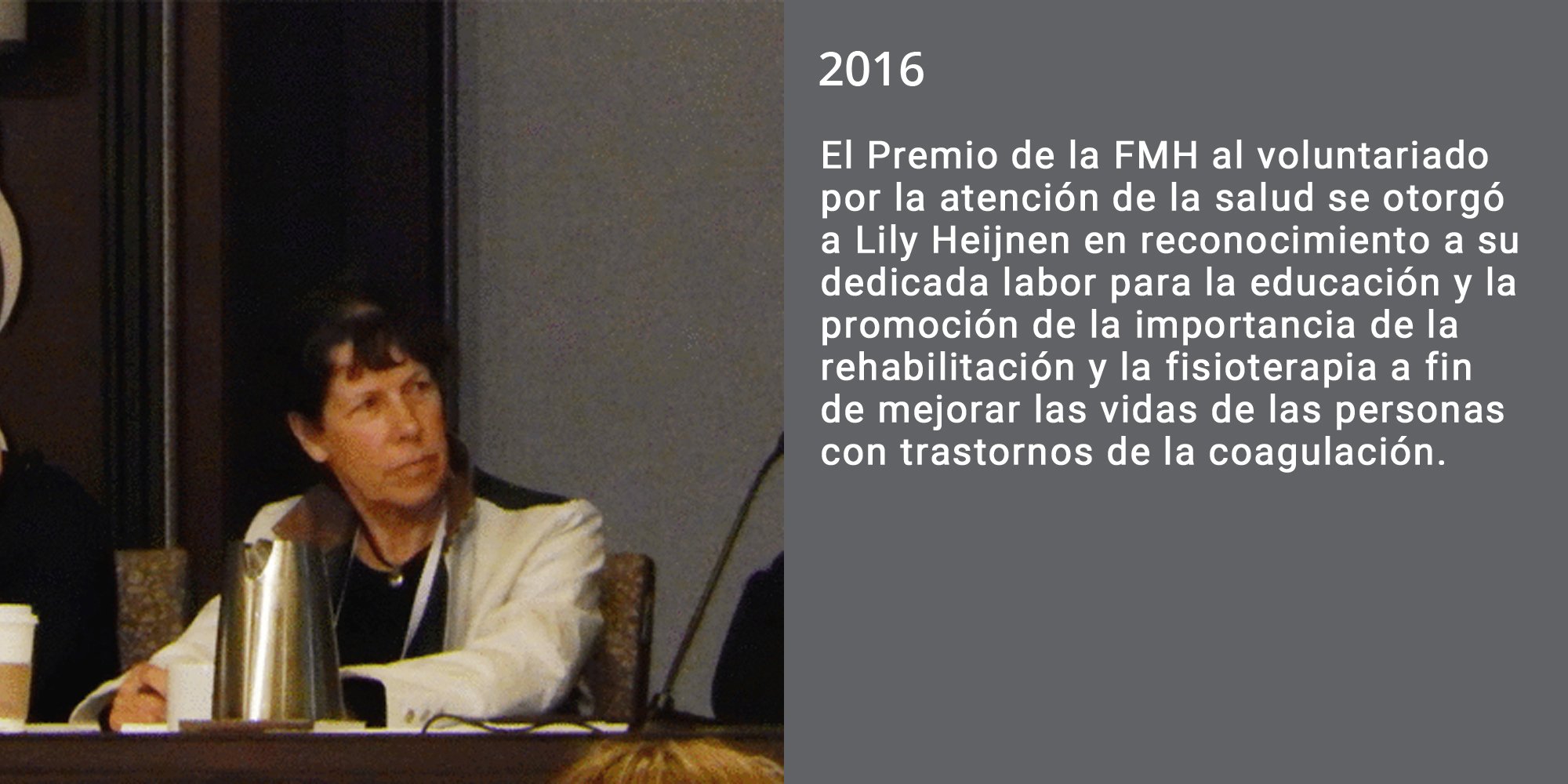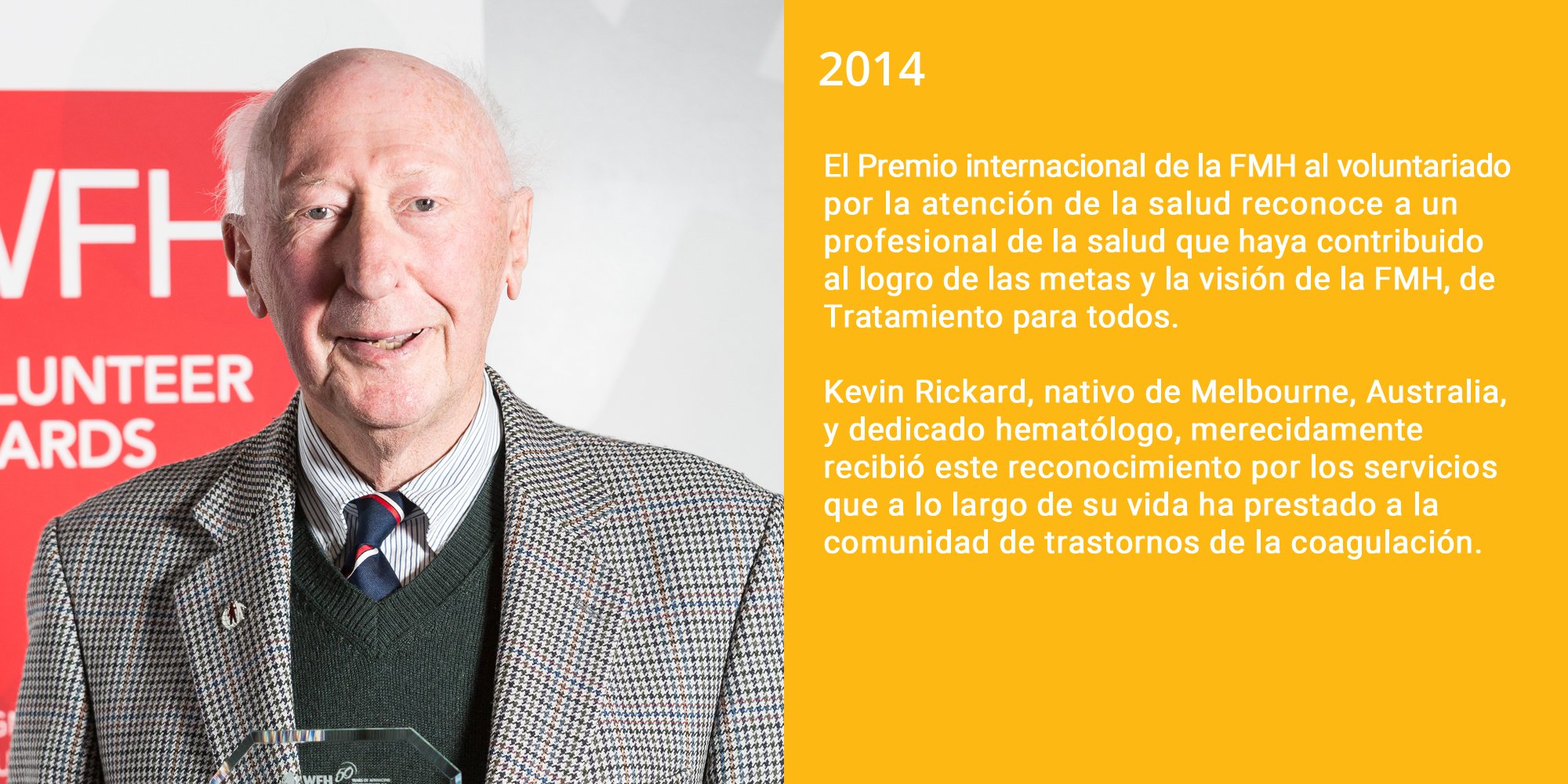Emitidas por el Consejo Asesor Médico (MAB por su sigla en inglés) * y el Comité sobre acceso, suministro y disponibilidad de productos de tratamiento (CPSSA por su sigla en inglés)** de la Federación Mundial de Hemofilia (FMH).
*Miembros del MAB: Greig Blamey, Ampaiwan Chuansumrit, Saliou Diop, Vincent Dumez, Magdy El Ekiaby, Cédric Hermans, Alfonso Iorio, Radoslaw Kaczmarek, Kate Khair, Steve Kitchen, Barbara Konkle, Ed Kuebler, Declan Noone, Flora Peyvandi, Steven Pipe, Jeff Stonebraker, Graeme Ting, Alain Weill y Glenn F. Pierce, presidente
**Miembros del CPSSA: Magdy El Ekiaby, Dan Hart, Marion Koerper, Mike Makris, Brian O’Mahony, David Page, Flora Peyvandi, Glenn Pierce, Thomas Sannié, Uwe Schlenkrich, Mark Skinner, Alok Srivastava, Craig Upshaw y Radoslaw Kaczmarek, presidente
Para personas con hemofilia (PCH) que actualmente reciben tratamiento con concentrados de FVIII o de FIX recombinantes estándar o de vida media prolongada, FEIBA, FVIIa o emicizumab
- No hay motivo para modificar el régimen de tratamiento recomendado.
- En esta etapa, no hay motivo para temer una escasez de productos de tratamiento, problemas de fabricación o interrupción en la cadena de suministro.
- Si el suministro en casa o en el hospital fuera limitado, comunicarse con los centros de tratamiento de hemofilia (CTH).
- Si se administra tratamiento en el hogar, no pedir más productos de reemplazo de los razonablemente necesarios. No obstante, sería prudente contar con unas cuantas dosis adicionales para uso en el hogar, en caso de que llegaran a presentarse retrasos o perturbaciones en la entrega de los productos.
Para PCH que reciben tratamiento con FVIII/FIX derivados de plasma
- La inactivación viral y los procedimientos de eliminación utilizados son suficientes para destruir virus con envoltura lipídica como el SARS-CoV-2.1
- No se recomienda cambiar de producto.
- Hasta ahora no se han detectado perturbaciones en el suministro de productos derivados de plasma. En esta etapa, la principal preocupación es un decremento en la recolección de plasma al inicio del proceso de producción de productos derivados de plasma.2,3
- La donación de sangre y plasma sigue siendo un proceso seguro, y la necesidad de donaciones de plasma es mayor que nunca. El apoyo de actuales y nuevos donantes es indispensable para mantener un suministro adecuado de sangre y plasma durante esta pandemia.
- Se recuerda a todos los CTH y centros de recolección de sangre y plasma que sigan las directrices para proteger tanto a su personal como a los donantes, y para evitar la diseminación del SARS-CoV-2 mediante el contacto entre seres humanos a través de gotitas del sistema respiratorio, así como de fómites (material contaminado).4
- En el caso de PCH que reciben tratamiento con otros hemoderivados que no son inactivados viralmente (e. g.: crioprecipitado, plaquetas), las decisiones de tratamiento deberían basarse en un análisis del riesgo/beneficio médico que equilibre la seguridad de no administrar tratamiento en caso de un episodio hemorrágico y cualquier riesgo residual de contraer otra infección.
Para PCH que actualmente participan en ensayos clínicos (excluyendo ensayos poscomercialización)5
- Comunicarse con su CTH para abordar las implicaciones de la pandemia.
- Asegurarse de la disponibilidad de los fármacos del estudio y de que el tratamiento no se interrumpa.
- Abordar las modalidades de seguimiento monitoreo con el equipo de estudio del CTH. Se recomiendan enfáticamente las visitas de seguimiento remotas, a menos que tenga que administrarse un producto experimental y que el monitoreo cara a cara sea necesario para evitar efectos secundarios peligrosos.
- En el caso de PCH que recientemente recibieron un producto de terapia génica (<12 meses después de la infusión), la prueba de la función hepática programada debería seguir siendo prioritaria para fines de seguridad y eficacia.
- Si actualmente estuviera recibiendo tratamiento de un ensayo clínico, no suspenderlo o cambiarlo a menos que el equipo del estudio así se lo indique.
Para PCH que tienen previsto inscribirse a un ensayo en el que se someterá a prueba un nuevo tratamiento5
- Debería abordarse con el equipo del estudio la posibilidad de posponer la inscripción.
- Muchos centros médicos han prohibido el inicio de nuevos ensayos clínicos a fin de no desviar recursos necesarios para combatir la pandemia.
Medidas específicas para PCH a fin de reducir la exposición al SARS-CoV-2, el virus que causa COVID-19
- Todas las medidas para reducir la exposición a personas con COVID-19 deberían promoverse de manera proactiva entre todas las PCH con comorbilidades (enfermedad cardiovascular, hipertensión, obesidad, diabetes, VIH, edad avanzada), o que reciban esteroides y otros fármacos potentes supresores del sistema inmunológico.6,7
- Reducir al mínimo la exposición a toda persona, incluso aquellas consideradas de bajo riesgo y niños, es la mejor manera de prevenir la infección. Aislarse en su lugar de residencia y el distanciamiento social son las herramientas más importantes para este fin.
- Minimizar la necesidad de visitar a profesionales de la salud en hospitales o consultorios. La atención no urgente y las cirugías programadas deberían posponerse.
- El paracetamol (acetaminofén) reduce la fiebre sin inhibir la respuesta inflamatoria necesaria para combatir al coronavirus y se recomienda para las personas con trastornos de la coagulación.
- La dosis de paracetamol (acetaminofén) no deberá superar 60mg/kg/día o 3g/día, dado que en dosis mayores ocasiona daño hepático.
- Generalmente no se recomiendan ni el ibuprofeno ni otros fármacos antinflamatorios no esteroides (AINE) para PCH ya que podrían incrementar la hemorragia debido a que inhiben la función plaquetaria. Además se ha señalado que el ibuprofeno, en particular, podría ya sea empeorar el COVID-19 o incrementar el riesgo de infección por el SARS-CoV-2 debido al aumento del receptor de entrada, la enzima 2 convertidora de la angiotensina. Sin embargo, las pruebas que apoyan esta teoría son limitadas por ahora.8-10
- Recordar que medidas higiénicas específicas, tales como lavarse las manos con jabón frecuentemente, no tocarse la cara, no diseminar la tos, y mantener por lo menos 2 metros (6 pies) de distancia de otras personas, son esenciales a fin de evitar la transmisión del coronavirus.
Medidas específicas en caso de admisión hospitalaria de un paciente con trastornos de la coagulación infectado con COVID-19
- Buena comunicación entre el hospital al que ingresa el paciente y el CTH.
- Hacer arreglos para la terapia de reemplazo / garantizar el acceso venoso.
- Informar al equipo si el paciente recibiera tratamiento con emicizumab (debido al riesgo de manejo inadecuado y de malinterpretación de los análisis de laboratorio hemostáticos por parte de profesionales de la salud no familiarizados con este fármaco).11
- Informar si el paciente forma parte de un tratamiento experimental en curso con agentes reequilibrantes (anti-IFVT y fitusirán) y si tuviera riesgo de trombosis o de otros desequilibrios del sistema coagulatorio, o si se hubiera sometido recientemente a un tratamiento de terapia génica. De ser así, establecer comunicación con el CTH.
- Si se llegara a contraer la infección del COVID-19, algunos médicos recomiendan terapia profiláctica y el mantenimiento de concentraciones de factor más elevadas como precaución ante una posible hemorragia pulmonar debida al grave daño que causa el SARS-CoV-2, y al incremento de la presión sanguínea en el cerebro producida por la fuerte tos y el sonarse la nariz, los cuales también podrían provocar una hemorragia. Se han reportado casos con pruebas que apoyan lo anterior.
Las noticias cambian diariamente. Actualizaremos la información de la FMH conforme sea necesario.
Referencias
- Busch M, LM Katz, H Shan.Webinar: Update on the COVID-19 Coronavirus Outbreak: Blood Collection and Safety Implications. ISBT Education. 03/04/20. https://education.isbtweb.org/isbt/2020/covid-19/289245/michael.busch.louis.m.katz.26.hua.shan.webinar.update.on.the.covid-19.html?f=menu%3D8%2Abrowseby%3D8%2Asortby%3D2%2Alabel%3D19776. Consultado el 19 de marzo de 2020.
- Novel Coronavirus Disease (COVID-19) Resources. https://www.pptaglobal.org/23-advocacy/access-to-care/1057-covid-19. Consultado el 19 de marzo de 2020.
- New Coronavirus (SARS-CoV-2) and the Safety Margins of Plasma Protein Therapies. https://www.pptaglobal.org/media-and-information/ppta-statements/1055-2019-novel-coronavirus-2019-ncov-and-plasma-protein-therapies. Consultado el 19 de marzo de 2020.
- van Doremalen N, Bushmaker T, Morris DH, et al. Aerosol and Surface Stability of SARS-CoV-2 as Compared with SARS-CoV-1. N Engl J Med. 2020 Mar 17. DOI: 1056/NEJMc2004973.
- FDA Guidance on Conduct of Clinical Trials of Medical Products during COVID-19 Pandemic. https://www.fda.gov/regulatory-information/search-fda-guidance-documents/fda-guidance-conduct-clinical-trials-medical-products-during-covid-19-pandemic. Consultado el 19 de marzo de 2020.
- Zhou F, T Yu, R Du. Clinical course and risk factors for mortality of adult inpatients with COVID-19 in Wuhan, China: a retrospective cohort study. The Lancet. Publicado en línea el 9 de marzo de 2020. DOI: https://doi.org/10.1016/S0140-6736(20)30566-3.
- Fang L, G Karakiulakis, M Roth. Are patients with hypertension and diabetes mellitus at increased risk for COVID-19 infection? Lancet Respir Med 2020. Publicado en línea el 11 de marzo de 2020 DOI: https://doi.org/10.1016/S2213-2600(20)30116-8
- EMA gives advice on the use of non-steroidal anti-inflammatories for COVID-19. https://www.ema.europa.eu/en/news/ema-gives-advice-use-non-steroidal-anti-inflammatories-covid-19. Consultado el 19 de marzo de 2020.
- Voiriot G, Q Philippot, A Elabbadi, C Elbime, Martin Chalumeau, M Fartoukh. Risks Related to the Use of Non-Steroidal Anti-Inflammatory Drugs in Community-Acquired Pneumonia in Adult and Pediatric Patients. J. Clin. Med. 2019, 8, 786; DOI: 10.3390/jcm8060786
- Legras A, B Giraudeau, A-P Jonville-Bera, et al. A multicentre case-control study of nonsteroidal anti-inflammatory drugs as a risk factor for severe sepsis and septic shock. Critical Care 2009, 13: R43 (DOI:10.1186/cc7766).
- Adamkewicz JI, DC Chen, I Paz-Priel. Effects and Interferences of Emicizumab, a Humanised Bispecific Antibody Mimicking Activated Factor VIII Cofactor Function, on Coagulation Assays. Thromb Haemost 2019; 119(07): 1084-1093. DOI: 10.1055/s-0039-1688687
Páginas internet de interés
- https://www.cdc.gov Centros para el Control y la Prevención de Enfermedades de EE. UU. (CDC)
- https://www.who.int/emergencies/diseases/novel-coronavirus-2019 y https://www.who.int/health-topics/coronavirus Organización Mundial de la Salud (OMS)
- https://www.ecdc.europa.eu/en/novel-coronavirus-china Centro para la Prevención y el Control de Enfermedades de la Unión Europea (UE)
- https://www.nih.gov/health-information/coronavirus Institutos Nacionales de Salud de EE. UU. (NIH)
- https://www.worldometers.info/coronavirus/ Datos mundiales
- https://www.nejm.org/coronavirus Resúmenes del New England Journal of Medicine
- https://www.pptaglobal.org/23-advocacy/access-to-care/1057-covid-19 Asociación de Terapéuticos de Proteína de Plasma (PPTA)
- https://www.isbtweb.org/ Sociedad Internacional de Transfusión Sanguínea (ISBT)
KEYWORD: MEDICALC19





